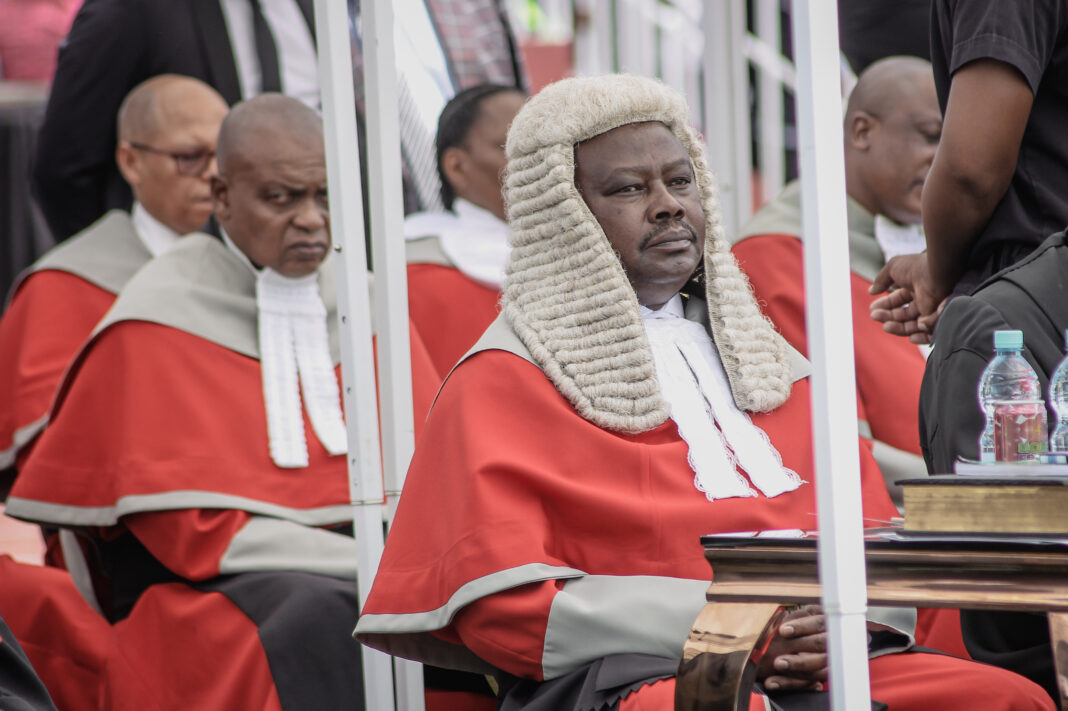Editorial Comment
Chief Justice Sakoane Sakoane’s recent address on the Amendment to the Constitution Bill, revealing it as a “dead thing”, raises crucial questions about the trajectory of Lesotho’s constitutional reforms.
His articulate analysis and sobering assertions bring the attention back to where it matters most: the future of the nation.
The symposium, meticulously arranged by the Transformation Resource Centre (TRC), examined the country’s constitutional evolution under the shadow of skepticism and confusion.
Sakoane’s candidness, while provocative, underlines the pressing need to re-evaluate the reform process’s legitimacy and its alignment with the will of the Basotho people.
His emphasis on the people’s ownership of the constitution resonates deeply. The sobering reminder that a constitution isn’t merely a document for politicians but a reflection of the collective aspirations and values of a nation holds profound importance.
Lesotho’s reform path has been fraught with hurdles. The intricate dance between parliamentary orders, legal battles, and power dynamics has left the reform process in a state of disarray.
Recent judicial decisions, notably the nullification of Standing Order No. 105B, signify the complexity of balancing legal provisions and democratic integrity.
Professor Hoolo Nyane’s plea for a comprehensive constitutional overhaul is a call to action. The collapse of prior reform efforts reflects the urgency for a more decisive approach. Incremental changes might not suffice; Lesotho requires a holistic transformation of its constitutional fabric.
The turmoil surrounding the Omnibus Bill, from failed parliamentary attempts to legal disputes, indicates an urgent need for introspection. Kananelo Boloetse’s unwavering stance against reviving the Bill to its pre-dissolution state emphasises the importance of procedural integrity in legislative processes.
Sakoane’s questions about external influences driving the reform process are pertinent. The tussle between donor-driven agendas and the Basotho people’s aspirations risks diluting the true essence of constitutional reforms—a framework embodying the hopes and aspirations of the nation.
Lesotho stands at a crossroads. The need for a transparent, inclusive, and people-driven process cannot be overstated. The call for a new constitution, supported by public consultation and subject to the will of the electorate, demands serious consideration.
It’s time for introspection and decisive action. Lesotho’s constitutional reforms must prioritize the Basotho people’s voice, ensuring that the country’s democratic fabric remains true to their collective vision. The way forward requires a unified effort, guided by wisdom, prudence, and an unwavering commitment to the nation’s future.
It’s time to re-envision, reform, and reaffirm the spirit of Lesotho’s constitution—a document that truly belongs to “we the people.”
Standing Against GBV
As we find ourselves within the pivotal 16 days of activism against gender-based violence (GBV), recent statistics from Lesotho illuminate a harrowing reality: reported instances of GBV have more than doubled in the 2022/2023 period compared to the preceding year.
This alarming surge, as detailed in the combined reports submitted under Article 18 of the Convention on the Elimination of Discrimination against Women, demands our urgent attention and concerted action.
While commendable steps have been taken, including the enactment of the Counter Domestic Violence Act of 2022 and the establishment of support structures like Lapeng Care Centre, limitations persist.
The Center’s capacity, primarily aiding women and girls, underscores the urgent need for comprehensive care facilities catering to all victims.
Government efforts in collaboration with development partners and civil society to promote #Believeher campaigns and introduce technological solutions such as the Nokaneng app and toll-free helplines are steps in the right direction.
However, these efforts must not remain isolated but evolve into comprehensive, inclusive interventions.
The distressing trend observed during the COVID-19 pandemic, amplifying GBV incidents, is a stark reminder of the multifaceted challenges faced. School closures not only impacted education but also exacerbated vulnerabilities, leading to increased child marriages and a surge in domestic violence, femicide, and murder rates.
While strides have been made in understanding and addressing GBV, the need for proactive, inclusive, and holistic measures remains pressing. Collaborative efforts involving diverse stakeholders are pivotal in mitigating this crisis.
Gender equality, economic empowerment, political representation, and comprehensive support for victims must be integral parts of our response.
During these 16 days of activism and beyond, it is imperative for the government, civil society, individuals, and institutions to unite, take collective responsibility, and implement comprehensive strategies to combat GBV.
Let these days serve as a catalyst for sustained action, where our collective determination and unwavering advocacy can bring about tangible and lasting change.
The fight against GBV transcends these 16 days; it demands a continuous, unwavering commitment to create a world free from violence and discrimination, where everyone feels safe, valued, and respected.




